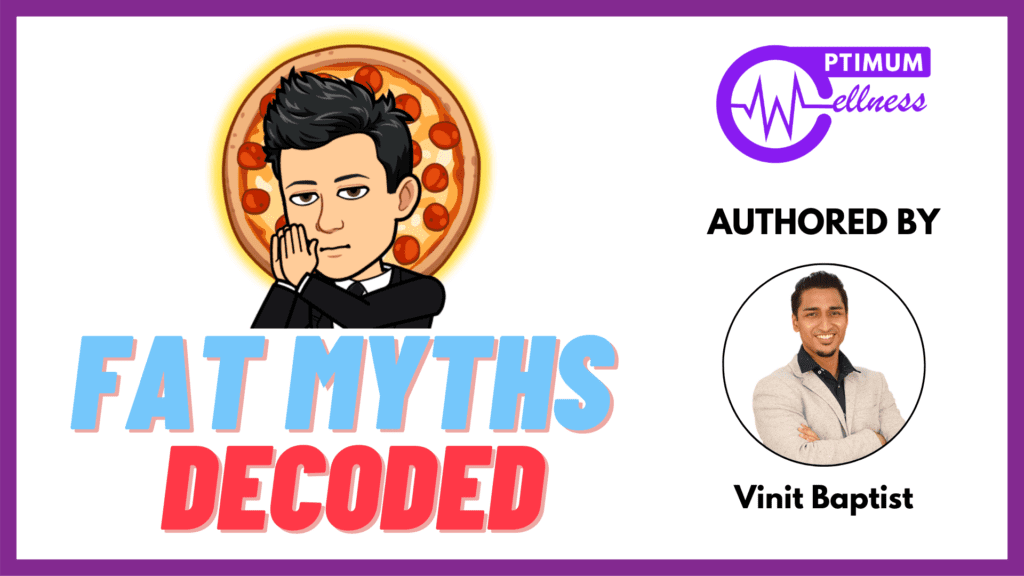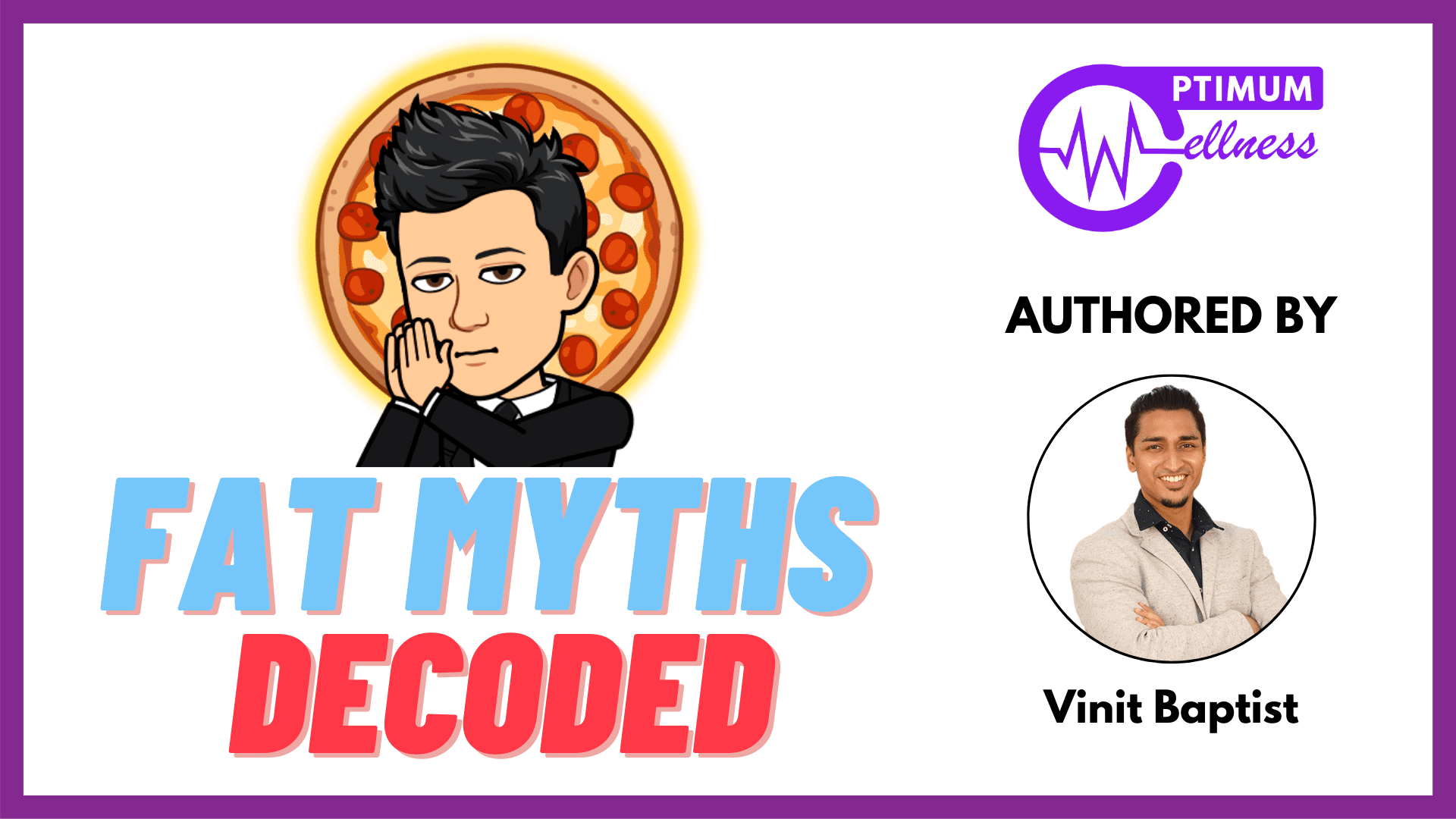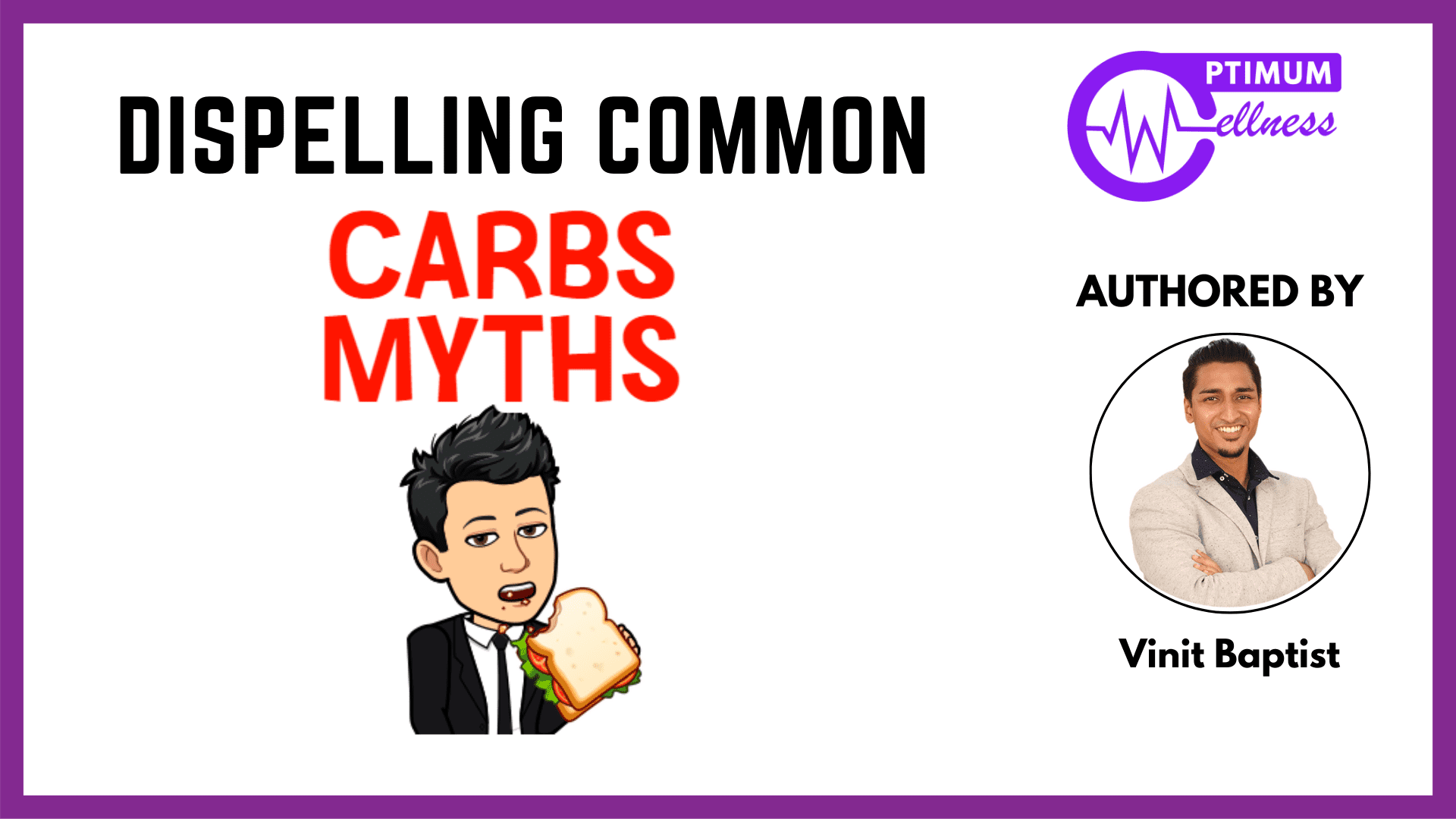
Tarted becoming an issue just as she began stressing about
Introduction As fitness is an extremely diverse sphere, goals vary from person to person. We’re proud to say that our

Fat loss is probably the most widely sought-after fitness goal. If you’re on your fat loss journey, you might end up feeling overwhelmed by all the information out there. With tons of myths and misinformation out there (we’ve all heard of miracle overnight fat loss tips, haven’t we?) it can get quite confusing.
Let’s try to make things a bit easier for you. Here are 8 of the most common myths about fat decoded.
Firstly, let’s understand fat loss in general. Is fat loss the same as weight loss? This may come as a surprise to some, but they are not the same. The amount of fat you have i.e. your fat mass is a part of your entire body weight, but not the only component.
Your body weight depends on a lot of factors, including but not limited to your bone mass, muscle mass, the food in your stomach, and much more. It may fluctuate due to various factors such as stress levels, sleep quality and quantity, sodium intake, hormones, etc. On the other hand, fat loss is a linear process that depends on your total calorie intake. If you eat in a calorie deficit, you will achieve results, as far as fat loss is concerned.
Now that we’ve got the base cleared up, let’s go ahead and debunk some myths.

Dietary fat has long been villainized. It is commonly blamed for the world’s ongoing obesity epidemic. On the surface, it may look like dietary fat is to blame for any excess fat in your body. However, it is also true that if we completely neglect fat and eat proteins and carbs in excess, you’ll be in a surplus it will actually prevent our body from metabolising dietary fat for energy.
Overconsumption of any food will lead to excess fat, it is not limited to only dietary fat. If you eat a balanced meal and maintain a calorie deficit, you don’t have to worry about accumulating body fat in the first place.

The ‘fat burning zone’ is where you are working out at about 70 – 80% of your maximum heart rate, also known as your fat burning heart rate.
When one trains at a specific intensity and the oxygen consumption during this exercise/ activity increases relatively, then our body tends to use more fat as fuel than glucose. The rate of fat being burned starts to decline at higher intensities as the body requires energy more rapidly.
However, in the grand scheme of things this has no relevance in how much body fat one loses.

Dietary fat is an umbrella term that actually includes a variety of fatty acids. When we choose a specific type of food dominant in fat we get a combination and not any single fatty acid in isolation. For example, canola oil contains some saturated fat but is mostly monounsaturated fat. In contrast, butter contains some unsaturated fat but is mostly saturated fat.
Saturated fat occurs naturally in red meat and dairy products. It’s also found in baked goods and fried foods.Trans fat occurs naturally in small amounts in red meat and dairy products. Trans fat can also be manufactured by adding hydrogen to vegetable oil.
Something to keep in mind is that trans fatty acids are something which we could minimise as they are strongly correlated to various cardiovascular diseases.

“High levels of fat consumption is strongly related to heart disease.”
We’ve all heard this, right? And most people fully believe in it. To break down the above statement further, “high” could be very subjective to the individual in question.
Since dietary fat is considered an essential nutrient, the key is to maintain a minimum “healthy” range of fat intake. For the average adult, this is about 0.3-0.4 grams of fat per kg of bodyweight per day. I know we keep saying this, but moderation really is the key here.

We’ve already talked a little about what saturated fats are and where they are found.
Early research concluded that saturated fats are to be blamed for heart disease. However, science is ever evolving. Newer research actually revealed that most of these studies conducted had a combination of fatty acids and not saturated fats alone.
Current scientific literature suggests that we can include saturated fats in our diet but we should limit the consumption to an upper limit of ~ 30 grams a day.

Eating fat MAY lead to weight gain, but only if the person is eating in a calorie surplus. Naturally, eating anything in a calorie surplus can lead to weight gain, so associating a negative connotation with dietary fat does not really make sense and it is not true.
Your weight is the result of many factors such as your bone mass, muscle mass, the food in your stomach, and more. It may fluctuate due to a variety of factors such as stress levels, sleep quality and quantity, sodium intake, hormones, etc. You don’t have to restrict yourself from dietary fat if what you eat comes under an overall calorie deficit.

Here’s the thing. Eating dietary fat along with a sustained calorie surplus could lead to an increase in body fat levels. This can further increase chances of getting diabetes eventually.
To put it simply, let’s look at it this way- Consistent calorie surplus, leading to weight gain may increase insulin resistance which can eventually cause diabetes.
You may notice that again, dietary fat is not the culprit here. Following a balanced diet which includes dietary fat in a calorie deficit (or maintenance, depending on your goals) will not increase the risk of diabetes.

Dyslipidemia is a condition caused by the imbalance of lipids such as cholesterol, low-density lipoprotein cholesterol, (LDL-C), triglycerides, and high-density lipoprotein (HDL).
Saying that you should not eat dietary fats if you have dyslipidemia is more of a blanket statement told to people in an attempt to improve their lipid profile. Practically speaking, things require a lot more nuance than this.
What you actually need to keep in mind in case of Dyslipidemia are-
– Reduce body fat
– Replace most saturated fats with unsaturated fats
– Reduce/eradicate trans fats
– Increase fiber intake

Now that you’re aware of what the myths are and what science actually says regarding eating fat, you know that it’s nothing to be afraid of. Stay active, always follow a balanced diet, and practice moderation and you’re good to go!


Introduction As fitness is an extremely diverse sphere, goals vary from person to person. We’re proud to say that our

Shrey had always been interested in fitness and nutrition. Working with a student as dedicated as Shrey is always a

Shrey had always been interested in fitness and nutrition. Working with a student as dedicated as Shrey is always a

HOW TANAY GOT SHREDDED DOWN TO 12% BODY FAT NAME – TANAY MONDAL OCCUPATION OR PROFESSION – FITNESS COACH START

VEGAN DOCTOR SANDEEP’S 6 MONTH TRANSFORMATION NAME – DR. SANDEEP GUPTAOCCUPATION ~ OPHTHALMOLOGIST (EYE SPECIALIST)START WEIGHT ~ 78KGSGOAL WEIGHT ~

Anoushka is a brilliant classical dancer who performs Odissi dance. Owing to disordered eating habits and personal issues, she ended

Like many, Kusum Melwani struggled to maintain weight due to a poor lifestyle and health issues. She recalls that her

As fitness professionals, most of us have had our share of those odd, unsolicited comments or personal messages from a

Fat loss is probably the most widely sought-after fitness goal. If you’re on your fat loss journey, you might end

Carbs have always been the dietary enemy, especially for those trying to lose weight. But, at the same time, there